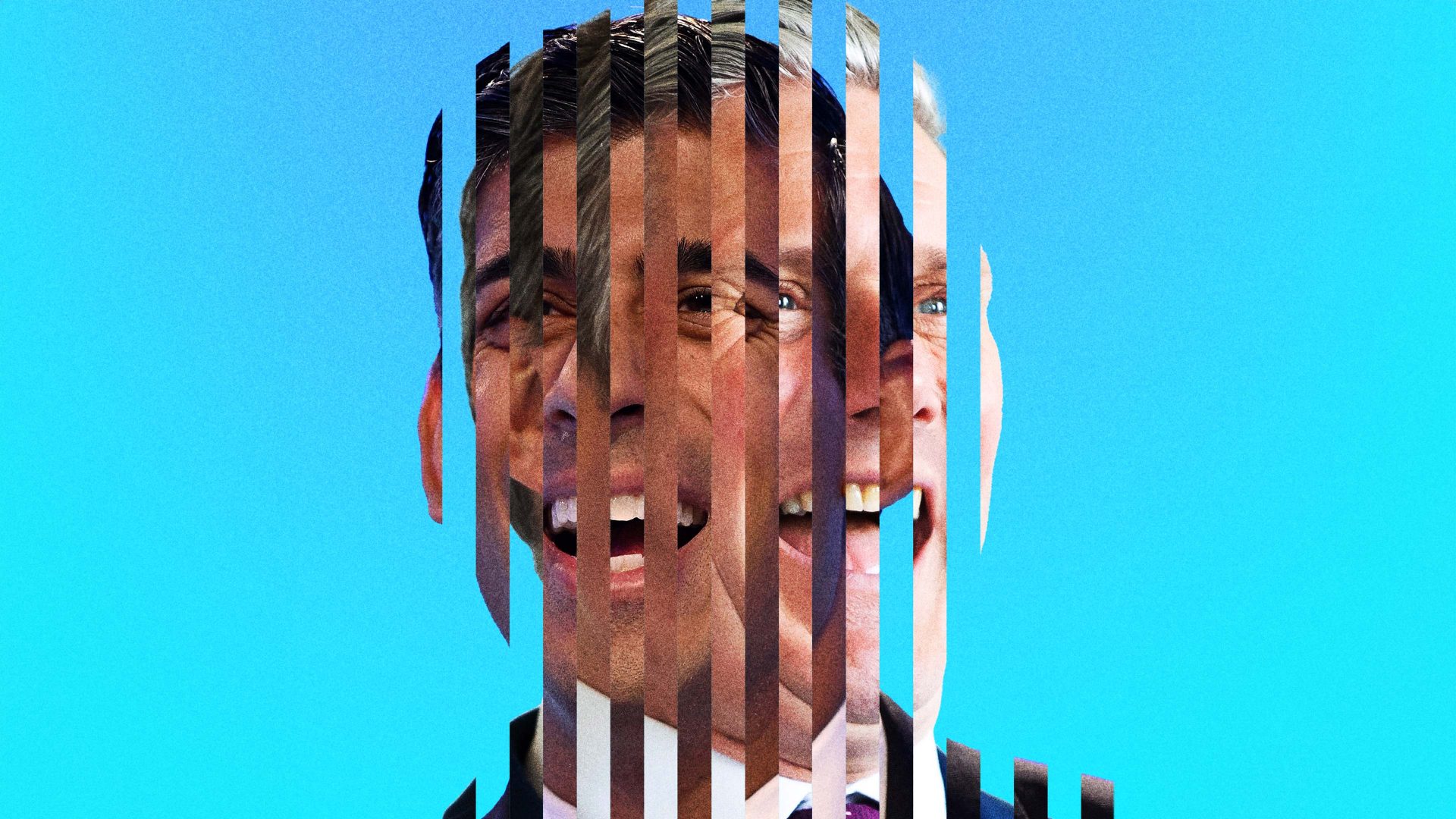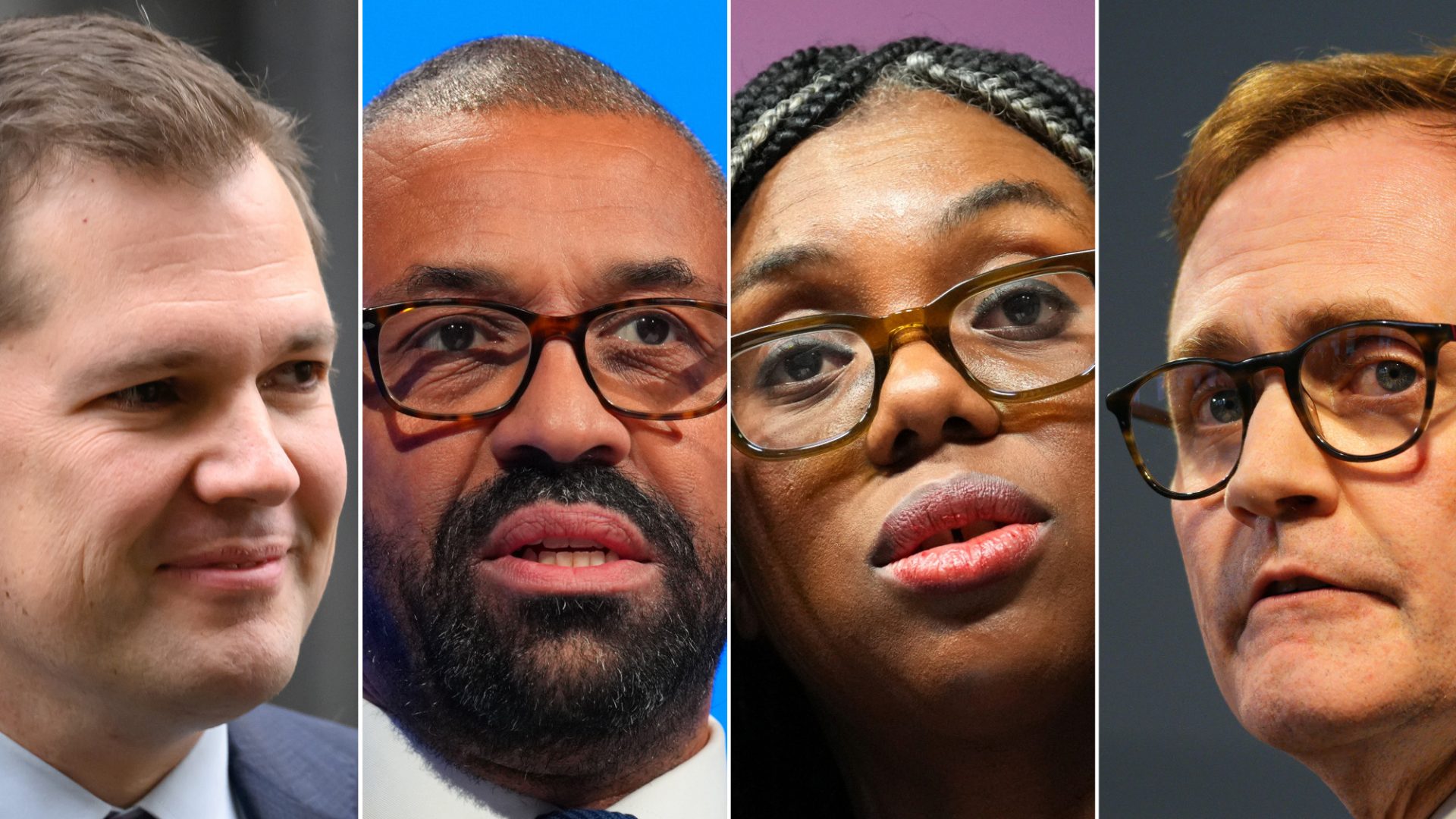No 10 is beset by infighting that routinely spills over into the media. Newspapers are chasing a series of scandals around freebies and donations. And no one’s quite sure what the government wants us all to be talking about instead.
As the song doesn’t quite go, it’s beginning to look a lot like Rishimess. Keir Starmer’s first few months of government are starting to resemble those of his predecessor, Rishi Sunak, to an almost unnerving extent, even if their circumstances in theory couldn’t be more different.
At the core of the case for us being in an extended era of Keir Sunak – or Rishi Starmerism – are similarities in the characters of the two men that aren’t immediately obvious. Both are hard workers who had enjoyed sustained success in their careers before becoming prime minister.
Both share a belief that if they focus on the “important” things – in both cases fixing the economy and delivering either five missions or five priorities – then voters will appreciate that. And both have a terrible blindspot as a result: they are not good at seeing that the public won’t always agree with them on what is and what isn’t trivial.
Sunak managed so many policy pivots in his short premiership that it’s easy to forget the context of his early months – until desperation drove him to deliver reckless tax changes, his mission as prime minister was to clean up the mess that Liz Truss left behind.
That meant being Mr Bad News: not only would the country get none of the tax cuts that Liz Truss had promised, but public spending would need to be tighter, too. Discipline would have to be the order of the day.
This is almost identical to the Starmer playbook as he’s entered government, with the layered irony that the mess he is now cleaning up is the one Sunak created in his doomed desperation to cling on in No 10.
But it is this same focus that led to a summer in which Labour had no big narratives to sell, other than letting a cut to winter fuel allowance dominate headlines for weeks, with a promise of more hardship to come in the budget. Into that news gulf rode a series of avoidable scandals, none of them on the same scale as the ones that plagued a Conservative government in its 14th year, but many of them at least sounding quite familiar.
Labour ministers who received donations from the think tank Labour Together then tried to appoint Labour Together staffers to civil service posts. Starmer, Angela Rayner and Rachel Reeves all accepted gifts of clothing, raising questions over how they were declared. That donor was given a pass to No 10.
Rayner accepted the use of a $2.5m flat for a New York holiday, brought along a “friend” (himself a Corbynite former Labour MP) without declaring it, and then said such a holiday didn’t qualify as a “luxury” trip.
Sue Gray, No 10 chief of staff and formerly the Cabinet Office official in charge of propriety and ethics, oversaw all of this, apparently without seeing the numerous problems it would cause. She then proceeded to accept a salary higher than that of the PM, even as she had cracked down on the salaries of her fellow special advisers, all while mounting an ongoing battle with the outgoing cabinet secretary.
These are the sort of headlines that usually beset governments that have been in office for a very long time and are about to go into opposition. It is exhaustion and depletion that leads to ethical lapses and bad political judgment.
It is the accumulation of grudges and internal battles that leads to endless briefing wars, which lead to the impression that No 10 is dysfunctional. It is that a prime minister at the fag end of a government has little choice in his ministers, which means he has to put up with second best.
None of this should be true for Labour, which should have entered the week of its first party conference in 14 years as the government in a state of triumph. It has a fresh team, a landslide majority, and a clear mandate for change – and yet no one knew what the conference was supposed to be about. Last Sunday’s papers had no policy announcements beyond a wonky (but good) plan on delivering more housing on brownfield sites, and a reheated devolution plan inherited from the Conservatives.
Yes, the media were running largely with “trivial” scandal issues, but… what else were they supposed to write? What does the government have to say?
The conference brochure says “14 years of hurt never stopped us dreaming”, which doesn’t really answer anything. Dreaming about fiscal prudence and a government that will make a sad face when it says there’s no money?
Sunak and his team handled scandal stories notoriously badly because as prime minister he had no instinct for them – he felt it wasn’t as important as the serious business of government, and so he didn’t pay attention to what might cause trouble.
Starmer shares this weakness: it is a good trait for a prime minister not to be obsessed with headlines, up to a point. The public cares about freebies, and not just because the media writes about them a lot – if you work behind a checkout in a supermarket, or as a teacher, or a lawyer, you get told what gifts you can and can’t accept, and the limit is usually well below £25. Seeing people on six-figure salaries accept thousands of pounds of free stuff looks bad. People don’t need the media to tell them it looks bad – it just does.
Keir Starmer is far less wealthy than Rishi Sunak and his family, but he is far richer than most people in the country will ever be. If he is not careful, he will look the same as his famously out-of-touch predecessor.
Keir Starmer, like Rishi Sunak, doesn’t like it when his team leaks, and doesn’t like process stories from within No 10. Both men seem to share the dimwitted belief that this disapproval will result in it not happening. This hasn’t worked for either.
There is still plenty of time for Starmer to succeed where Sunak failed, but it needs to start with admitting he’s somehow ended up in a similar quagmire. Starmer needs to act in two different directions at once.
First, he needs to stop hoping that ignoring the “silly” stuff will make it go away. He needs to get his own office in order, settle the infighting – which may mean departures – and get a firm grip on the ethics stuff, and fast. He also needs people in place who can spot these stories in advance (or as they first break) so that he doesn’t get a full week of headlines before promising to buy his own clothes in future.
But, more importantly, he cannot go another three months with taking away the winter fuel allowance as his best-known policy offer. People did not vote for continuity Sunak, or for fiscal prudence. They didn’t vote to be told how bad things are. They voted for someone to start making things better.
There were signs in Liverpool that this has been recognised, but there will need to be much, much more of it. Labour is in desperate need of a narrative to carry it through the end of the year and beyond.
Starmer is right that fixing the big things will win the public’s trust – and he needs to make a start on that. But he might want to remember what Sunak forgot: if you can’t run your own office, no one trusts you to run a country.




